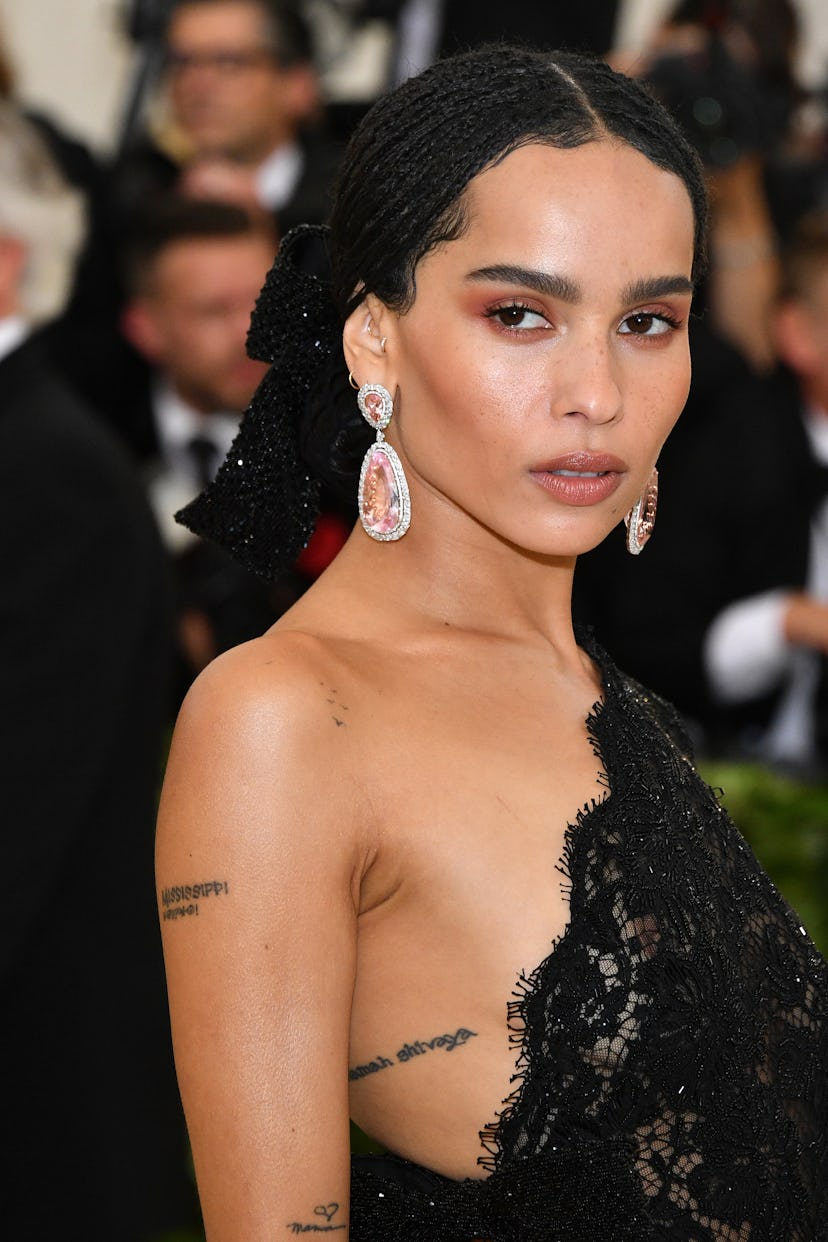Zoë Kravitz Would Like to Remind Men She’s Not Here to Look Good for Them

It’s a perennial topic of conversation: how, exactly, to respond to the most common perpetrator of street harassment. That is, the man who insists that you smile. Well, does Zoë Kravitz ever have the solution: In a new interview with Byrdie, when asked about “what it means to be a strong female in today’s political climate,” as the interviewer writes, she turned the conversation to her latest strategy.
“You know when a guy on the street tells you to smile?” Kravitz, who will appear in the upcoming second season of Big Little Lies as well as a recently announced gender-flipped High Fidelity television reboot, said to her interviewer. “I’ve been doing one of two things.” It starts the same way: She looks her interlocutor dead in the face. Then she either says, “Don’t f—ing tell me to smile”—a reliable classic—or she tells him, “My grandmother just died.”
“The whole point is to remind them I’m a human being,” she explained. “I’m not here to look pretty for you.” She might be going through some emotional thing like a death in the family; he doesn’t know! Real or imagined!
“Women are all about being pleasant, and life isn’t always pleasant,” she added. In a separate interview with Harper’s Bazaar that coincided with her new position as the face of YSL’s Black Opium fragrance{: rel=nofollow}, she mused on the same themes: “I think a lot of women are taught to make themselves smaller, to be quiet and be well behaved,” she said. And the Black Opium campaign appealed to her, she said, because “it doesn’t focus on romance, and it doesn’t focus on getting the attention of a man,” she said. “The goal isn’t to be accepted or looked at by someone else; it’s about her having an adventure that feeds her.”
As she explained later in the same Byrdie interview, she’s also found the cumbersome “cool girl” label that has clung to her—one that the interviewer repeats multiple times throughout the story—to be similarly dehumanizing. “I guess it’s a compliment, but it’s also a limiting thing,” she said. “And then people are scared of you, I’ve noticed. People become intimidated and forget that you’re a human.” And Zoë Kravitz is very human.